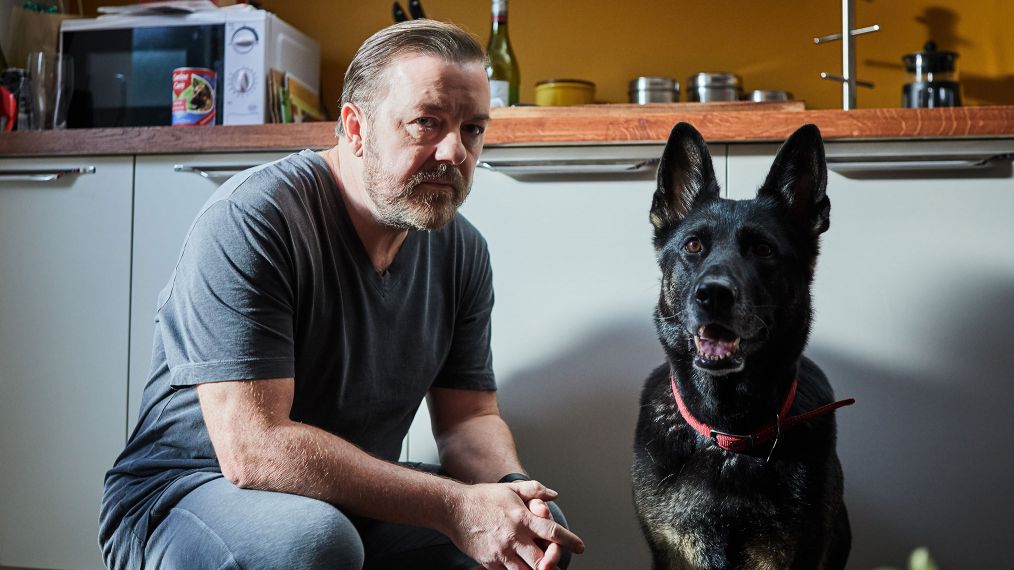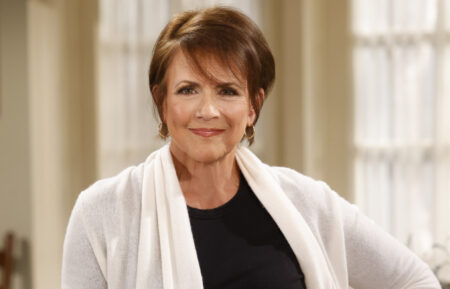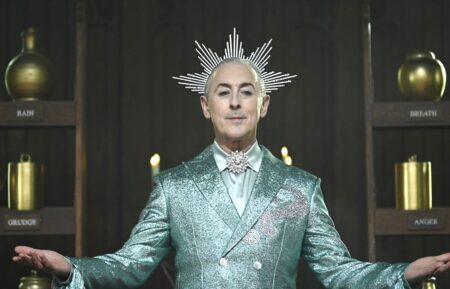Roush Review: ‘After Life’ Toggles Between Cynicism and Tear-Inducing Sentiment

Review
Grief is not a good look for Tony (Ricky Gervais), a morose widower who takes his pain out on just about everyone in his British village.
“There’s no advantage to being nice,” he decides, marinating in misery while watching videos of his late wife (Kerry Godliman) urging him to move on and try to be happy.
Unexpectedly moving, After Life charts Tony’s reawakening in six brisk episodes that toggle between cynicism and tear-inducing sentiment. Star-director-writer Gervais curbs the maudlin impulses that made his previous Netflix series, Derek, such a chore, finding sharp humor in Tony’s outrageous outbursts over petty grievances. (The character’s job as a human-interest reporter, forcing him to confront the cheerfully and hilariously absurd, only fuels his misanthropy.)
But life has a way of going on, and After Life leads Tony to face the fact that he’s not the only character in his story.
“We’re here for others,” insists widowed pal Ann (Downton Abbey‘s Penelope Wilton) — and when one of those others includes his dad’s fetching nurse (the invaluable Ashley Jensen), even Tony eventually has to realize that, while happiness may be a stretch, “Hope is everything.”
After Life, Series Premiere, Friday, March 8, Netflix
From TV Guide Magazine
What to Expect From 'The Hunting Party's Love Triangle and Mystery
Manifest alum Melissa Roxburgh and the showrunner of NBC’s Hunting Party tease TV Guide Magazine about what’s ahead for the “government conspiracy that just keeps unfolding” — plus, the series’ “good” love triangle. Read the story now on TV Insider.









